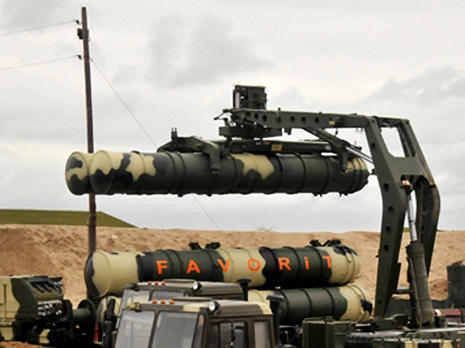"It is more or less obvious that the S-300 system production has already stopped,” he said. “It is impossible to produce new such complexes for Iran, a new contract is needed. Concluding new contracts will take at least 2-3 years."
He said that it is possible to supply other complexes that are being made now, namely S-400 and Antey-2500 with other tactical and technical data.
But there may be difficulties in this issue because Almaz-Antey plants, producing these anti-aircraft complexes, are fully loaded.
"By 2020, they must produce 57 regimental sets of new S-400 system,” the expert said. “We have already promised this system to the Chinese. In my opinion, it is impossible to make additional complexes."
Meanwhile, Goltz believes that Ira can still have the S-300 delivered to it, if they are taken from the Russian army.
The expert believes that if a political decision on this issue is made, then this option is quite realistic. However, he said, this will lead to a weakening of the Russian armed forces.
Any forecasts regarding the cost of supplies of Russian missile systems to Iran would be speculation, because all that relates to the sales of Russian military equipment is a great secret, and no one knows how beneficial they are, according to the expert.
The only figure that is announced annually is the total amount of contracts and the total volume of revenue, he said.
Goltz does not exclude the fact that in the future, Russia may use its veto right in the UN Security Council in order not to allow the West to introduce measures against Iran which could restrict the import of weapons into the country.
“The Kremlin is playing its geopolitical games,” said the expert. “This signal is not so much for Iran, as for Western countries, showing that we will do what we want and no one can tell us anything.”
“It is no accident that [Russian FM Sergey] Lavrov said that the decision to cut supplies of S-300 complexes to Iran was completely voluntary and independent,” said the expert. “In Russian interpretation it has nothing to do with the UN sanctions.”
The contract for delivering S-300 to Iran was signed in late 2007, however, in 2010, Russia refused from the supply, as the UN Security Council imposed sanctions on Iran banning the transfer of modern weaponry to the country. In response, Iran filed a $4-billion lawsuit to the International Court of Arbitration in Geneva against Russia’s Rosoboronexport company.
Further, in September 2010, Russia’s then President Dmitry Medvedev signed a decree on the measures to fulfill the UN Security Council resolution dated June 9, 2010 that imposed serious restrictions on the sale of weaponry and military equipment to Iran. Iranian nuclear program was the reason for imposing the sanctions.
However, after lifting the ban on supply, Secretary of Iran`s Supreme National Security Council Ali Shamkhani said that Tehran expects Russian S-300 anti-aircraft missile systems to be delivered in 2015.
More about:
















































